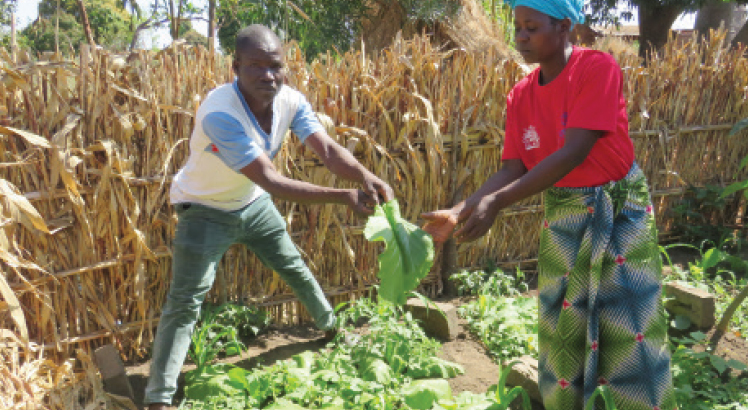Project builds disaster resilience in Zomba
Titukulane Project chief of party Daniel Abbot has urged communities in disaster-prone areas in Zomba District to repair dykes, intensify food production and venture into livelihood initiatives to mitigate the effects of climate change.
He said this on Friday after visiting traditional authorities (T/As) Mwambo, Mlumbe and Chikowi where he appreciated communities’ efforts to mitigate disaster risks.
Abbot expressed satisfaction with the communities’ strides in rehabilitating a dyke along Phalombe River, which was damaged by floods this year.

“The communities have also embarked on disaster recovery initiatives such as irrigation which is improving their nutrition status,” he said.
Abbot said the project will train community memberson how to sustain the interventions.
“Sustainability relies on the strength of the communities as they are in majority and capable of materialising the national resilience strategy,” he said.
One of the beneficiaries, Davis Green, whose household is benefitting in agribusiness, said following the floods this year, his family struggled to get food.
“Through the project, I ventured into vegetable farming. I used some for food and I sold some to raise money to buy supplementary foods,” he said.
Group village head Kathebwe said through the project, boreholes have been drilled in his area.
Department of Disaster Management Affairs (Dodma) risk reduction deputy director Fedson Chikuse encouraged the communities to build resilience in food production.
“A hungry person cannot repair a dyke. Therefore, it is important to build their food sufficiency to empower them in disaster risk management activities,” he said.
Titukulane is a USAid-funded five-year project, which started in 2019, to provide sustainable and resilient food and nutrition security for ultra-poor households in Mangochi and Zomba districts.





